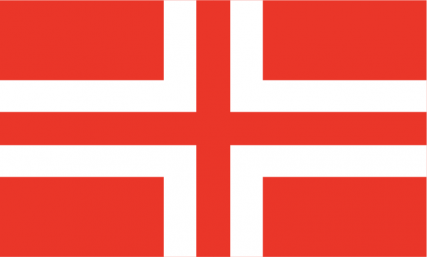Modes of Production are systems used by nations to produce different goods and services for its populace.
Different modes of production are characterized by varying modes of ownership, exchange, means of producing, and varying degrees of advancement in productive forces, i.e. different economic systems have different ways of making things and have different technologies.
Communism as a socio-political movement is described by communist and scientific socialist Karl Marx as the "real movement that abolishes the present state of things." Communist modes of production are marked by their lack of property, money, social classes, state, and commodity exchange.
Capitalism, by contrast, is a mode of production generally marked by private property, capital, markets, money, and commodity exchange. Commodities are products created for the purpose of exchange. Capitalist societies usually also have a class system of some form, although this is not necessarily a legal matter of the state and does not need to be rigidly enforced, e.g. social democracies attempt to limit class structure.
Feudalism is a mode of production characterized by rigid class structure of nobility and serf, and agrarian means of production. Feudalist societies do not utilize commodity exchange and money to the extent of capitalist societies generally.
Socialist societies are societies that may encompass any of the above modes of production but usually do not have private property, i.e. a market socialist society operates with markets and commodity exchange, but property is not privately owned.
This survey's purpose is to determine different nations' adoption of economic systems.
- Code: Select all
[b]A. GENERAL[/b]
[b]1. Full nation name:[/b]
[b]2. Type of government:[/b]
[b]3. Which mode of production is used? Check all that apply:[/b]
[] Feudalism
[] Capitalism
[] Socialism
[] Communism
[] Other:
[b]4. Does private property exist?[/b]
[b]5. Are commodities produced to be exchanged?[/b]
[b]6. When was private property abolished (if applicable)?[/b]
[b]7. When was private property legalized/first utilized (if applicable)?[/b]
[b]8. On average, how many people own property used for production?[/b]
[b]B. PROPERTY[/b]
[b]1. Which industries are privately owned?[/b]
[b]2. How do individuals go about buying property (if possible)?[/b]
[b]3. Is property owned by workers, capitalists, serfs, nobles, or other?[/b]
[b]4. Can land be owned?[/b]
[b]5. Does the state have the ability to seize private property?[/b]
[b]6. Can working-class people legally purchase property?[/b]
[b]7. Can the serfdom legally purchase property?[/b]
[b]8. Can men own property?[/b]
[b]9. Can women own property?[/b]
[b]10. Can government officials own property?[/b]
[b]11. Can foreigners own property?[/b]
[b]C. SOCIAL STRUCTURE[/b]
[b]1. Which socio-political movement dominates your mode of production? Check all that apply:[/b]
[] Liberalism
[] Monarchism
[] Fascism
[] Socialism
[] Communism
[] None of the above
[b]1a. For nations utilizing liberalism, which forms? Check all that apply:[/b]
[] Laissez-faire
[] Social Liberalism
[] Social Democracy
[] Mercantilism
[] Protectionism
[] Other:
[b]1b. For nations utilizing monarchism, which forms? Check all that apply:[/b]
[] Absolutism
[] Liberal Monarchism
[] Mercantilism
[] Feudalism
[] Religious Socialism
[] Other:
[b]1c. For nations utilizing fascism, which forms? Check all that apply:[/b]
[] Corporatism
[] National Socialism
[] Third-Position
[] State Capitalism
[] State Socialism
[] Other:
[b]1d. For nations utilizing Socialism, which forms? Check all that apply:[/b]
[] Marxism
[] Marxism-Leninism (or variant)
[] Market Socialism
[] Utopian Socialism
[] Religious Socialism
[] Other:
[b]1e. For nations utilizing communism, which forms? Check all that apply:[/b]
[] Scientific Socialism
[] Anarchist Communism
[] Religious Communism
[] Indigenous or Primitive Communism
[] Utopian Communism
[] Other:
[b]2. Can individuals exist in modes of living outside of the standard?[/b]
[b]2a. If no, how are these people dealt with?[/b]
[b]D. PROTOCOL AND PROCEDURES[/b]
[b]1. Is work done voluntarily or by force?[/b]
[b]1a. What are conditions like for forced labor (if applicable)?[/b]
[b]2. How, if at all, are workers compensated for labor?[/b]
[b]3. Do land owners (where applicable) decide on wages or compensation?[/b]
[b]4. Is there a separation between private and public production?[/b]
[b]5. Is there any preference between agrarian or industrial labor?[/b]
[b]6. Which days of the week are considered to be "work days?"[/b]
[b]7. Are "essential industries" (e.g. firefighters, judiciary) public or private?[/b]
[b]8. Who is able to work?[/b]
[b]9. Are there any legal barriers to work?[/b]
[b]10. Is work considered to be enjoyable?[/b]
[b]11. Do workers enjoy being workers?[/b]
[b]12. Is owning property considered a sign of greatness (i.e. are property owners revered)?[/b]
[b]13. Are property owners hated?[/b]
[b]14. How are products distributed? Are they exchanged as commodities?[/b]
[b]15. How does the state treat matters of production? Are political and productive matters considered separate?[/b]
[b]16. What happens when someone dies from work?[/b]
[b]17. Does money exist, and if so, does it determine or affect social status?[/b]
[b]E. PUBLIC OPINION[/b]
[b]1. What percentage of citizens support these modes of production?[/b]
[b]1a. Feudalism:[/b]
[b]1b. Capitalism:[/b]
[b]1c. Socialism:[/b]
[b]1d. Communism:[/b]
[b]1e. Other:[/b]
[b]2. What percentage of citizens do not support a specific system?[/b]
[b]3. Is there any sort of active resistance movement against your mode of production?[/b]
Currently, I do not plan on adopting any sort of index. Perhaps I will add one later.











